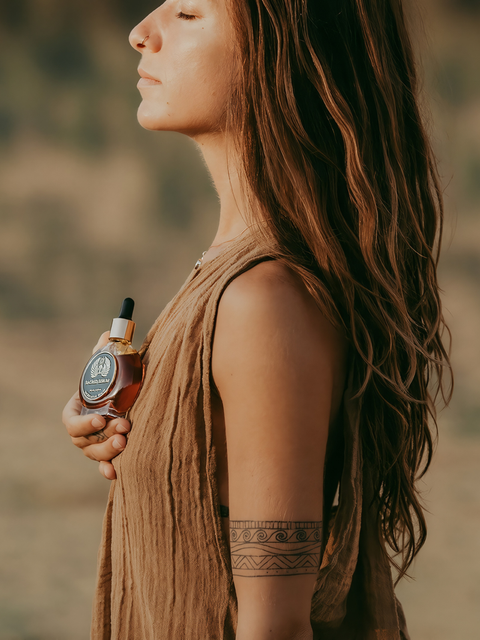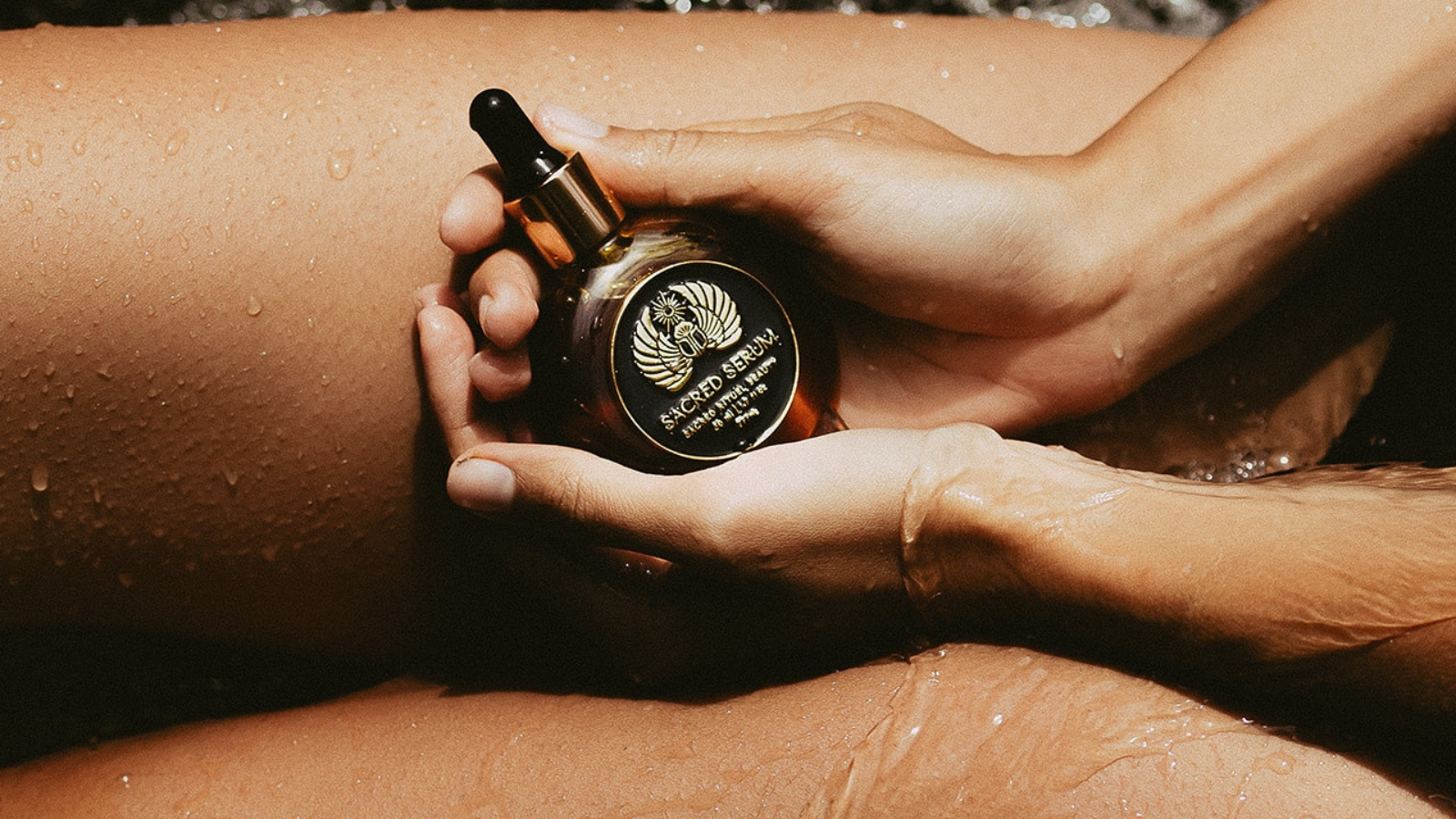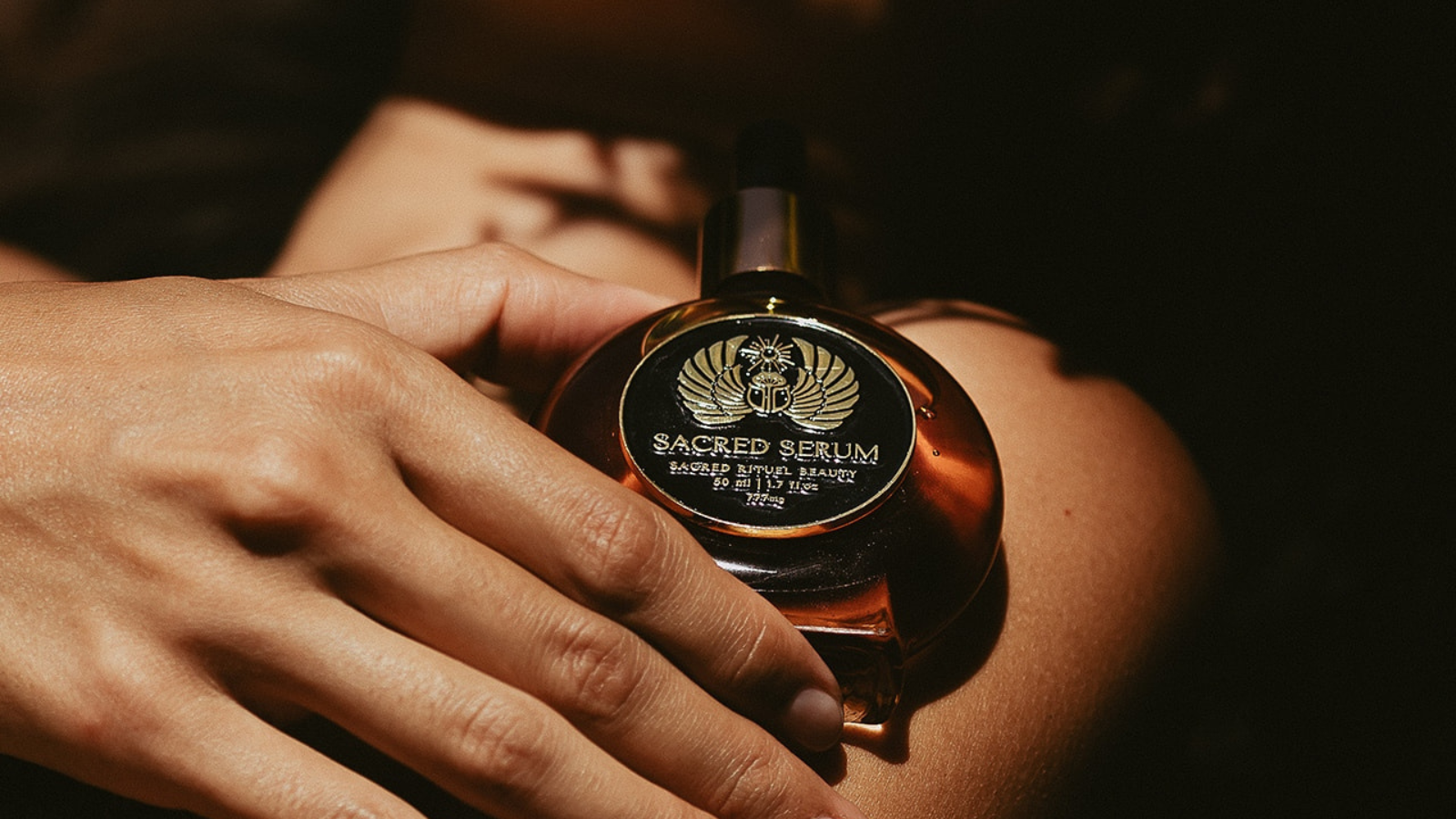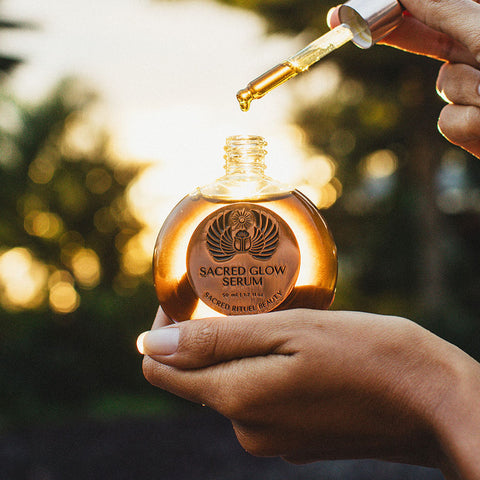
Embrace The Clean: Your Guide To Phthalate-Free Choices For A Healthier, Happier You
Key Takeaways:
- The Essence of Phthalate-Free: Embracing phthalate-free products is a powerful step toward safeguarding your health from hormone-disrupting chemicals.
- The Power of Conscious Choosing: Opting for phthalate-free items encourages manufacturers to innovate and offer safer, health-conscious alternatives.
- The Impact of Informed Living: Living phthalate-free not only benefits personal health but also significantly reduces environmental contamination.
When it comes to living a clean and mindful lifestyle, "phthalate-free" isn't just a buzzword—it's a commitment to health and wellness that speaks to the very essence of what Sacred Rituel customers value most. Whether it's the products we use, the food we ingest, or the environment we inhabit, going phthalate-free is an empowering choice that reflects our respect for our bodies and our planet. In this guide, we’ll explore the reasons to choose phthalate-free products and how to integrate them seamlessly into your daily ritual.
Say goodbye to the harsh additives commonly present in traditional skincare items and pamper your skin with the pure, natural goodness offered by Sacred Rituel.
What Are Phthalates?
Phthalates are a group of chemicals known for their role in enhancing the flexibility of plastics and as solvents in personal care products. These compounds are often lurking in items from toys and vinyl flooring to shampoos and food packaging. Due to their widespread use, phthalates are frequently encountered by consumers, often without their knowledge. Concerningly, phthalates have been linked to various health issues, including hormonal disruptions that can affect reproductive health and development. As public awareness grows, there is an increasing demand for products that are free from these questionable chemicals.
Embrace The Phthalate-Free WayJoin the movement towards a cleaner, healthier lifestyle with Sacred Rituel.
Transform your skincare routine with Sacred Rituel and experience the purest, most luxurious organic skincare today. See the magic for yourself and embrace the harmony of beauty and nature. |
Understanding Phthalate-Free Living
Phthalate-free living is about making conscious choices to avoid products that contain these potentially harmful chemicals. It encompasses a lifestyle that prioritizes natural and non-toxic alternatives for everything from household goods to personal hygiene products. Choosing phthalate-free means actively reading labels, learning about safe substitutes, and understanding the benefits of reducing chemical exposure. This way of life is particularly beneficial for those who are health-conscious, have sensitivities to chemicals, or wish to protect vulnerable populations, like children, from exposure. Ultimately, phthalate-free living reflects a broader commitment to a healthier lifestyle and environmental stewardship.
Importance Of Choosing Phthalate-Free Items
Choosing phthalate-free items is crucial for maintaining hormonal balance and reducing the risk of health complications. By avoiding these chemicals, individuals may lower their risk for conditions linked to endocrine disruption, such as certain types of cancer, fertility issues, and developmental problems in children. Phthalate-free choices also help protect the environment, as these chemicals can leach out and cause pollution. Additionally, opting for phthalate-free products can encourage manufacturers to develop safer alternatives and promote regulatory change. Consumers hold power in their purchases, and by choosing phthalate-free, they send a clear message about the importance of health over convenience.

Benefits Of Embracing A Phthalate-Free Lifestyle
Enhanced Overall Health
Adopting a phthalate-free lifestyle reduces exposure to chemicals associated with various health risks. This may lead to potential improvements in overall well-being by minimizing the likelihood of developing certain disorders linked to phthalate exposure. Lowering exposure levels may positively impact reproductive health, hormonal balance, and respiratory function.
Environmental Protection
Choosing phthalate-free products contributes to reducing environmental contamination. These chemicals can accumulate in waterways, affecting aquatic ecosystems and potentially harming wildlife. Opting for phthalate-free alternatives lessens the chemical burden on the environment, promoting sustainability and minimizing adverse effects on ecosystems.
Better Product Quality
Phthalate-free items often come from brands committed to using high-quality, natural ingredients. Such products tend to be more effective and gentler on the skin or in the environment. By avoiding synthetic compounds like phthalates, these products emphasize purity, offering safer and more beneficial alternatives.
Support For Ethical Companies
When consumers choose phthalate-free products, they often support businesses dedicated to ethical practices, sustainability, and transparency. This preference encourages companies to prioritize eco-friendliness, ethical sourcing, and safer manufacturing processes, driving positive change in the industry toward healthier and more sustainable options.
Practical Tips For Phthalate-Free Living
Becoming An Informed Shopper
Empower yourself by understanding product labels and recognizing the "phthalate-free" designation. Familiarize yourself with the diverse names used for phthalates, such as DEP, DBP, DEHP, and others, to easily identify products that are free from these compounds. This knowledge equips you to make informed decisions while purchasing personal care and household items.
Choosing Natural Fragrances
Opt for products that boast natural fragrances or those explicitly labeled as "fragrance-free." Phthalates are commonly utilized as fixatives in synthetic fragrances to extend their scent in various personal care products. Opting for products with natural fragrances or those without added scents reduces the likelihood of exposure to phthalates and associated risks.
Avoiding Plastic When Possible
Minimize your use of plastic items, particularly those marked with recycling codes 3 and 7, as they may contain phthalates. These chemicals are often used in plastics to enhance flexibility and durability. Consider choosing alternatives made from glass, stainless steel, or specifically labeled phthalate-free plastics to reduce your exposure to these compounds.
Exploring Phthalate-Free Options In Personal Care Products
Skincare Regimen
Prioritize phthalate-free skincare products to safeguard your skin from absorbing potentially harmful chemicals. Opt for skincare lines that are certified organic or natural, as they often use safer, naturally derived ingredients that promote healthier skin. These products contribute to preserving the skin's integrity and overall well-being.
Achieving fairer, smoother skin goes beyond external appearance—it's about nurturing your skin's health and well-being. Embrace the beauty of organic, clean skincare for naturally radiant and timeless beauty.

Haircare Choices
Selecting phthalate-free hair care products is vital for minimizing chemical exposure to your scalp and hair. Embrace products that prioritize natural and safer ingredients, contributing to the strength and vibrancy of your hair. Phthalate-free options not only maintain your hair's health but also reduce potential irritation caused by harsh chemicals.
Cosmetics Without Compromise
While many conventional makeup products contain phthalates, there's an expanding range of phthalate-free cosmetics available. These products offer the beauty and performance you desire without compromising on safety. Opting for phthalate-free cosmetics is particularly beneficial for those with sensitive skin, providing peace of mind regarding product safety.
Incorporating Phthalate-Free Choices Into Daily Life
Phthalate-Free Household Goods
Transitioning to phthalate-free household items goes beyond cleaning supplies and kitchenware. It includes selecting furnishings, textiles, and even children's toys that are free from these harmful chemicals. Prioritize purchasing goods that explicitly state they are phthalate-free to create a safer and healthier living environment for you and your family.
Mindful Eating And Storage
Minimize exposure to phthalates in food by choosing fresh, whole foods and reducing reliance on processed or packaged items. Opt for phthalate-free food storage options such as glass or stainless steel containers instead of plastic, especially when storing or reheating food. Phthalates can leach into food from plastic containers, particularly when exposed to heat.
Educating Others And Advocacy
Spread awareness about the benefits of a phthalate-free lifestyle. Engage with local communities, schools, and health organizations to advocate for policies that limit or eliminate the use of phthalates in consumer products. By educating others and advocating for safer alternatives, you contribute to a larger movement toward reducing harmful chemical exposure in society.
Investing In Sustainable Practices
Support companies and brands that prioritize sustainability and transparency in their production processes. Choose products from businesses committed to eco-friendly practices, ethical sourcing, and transparency about their ingredients. By supporting such companies, you encourage a shift towards safer and more sustainable manufacturing practices overall.
Final Thoughts On Phthalate-Free
Adopting a phthalate-free lifestyle is a significant step towards better health, both personally and environmentally. It represents a mindful choice, reflecting our values and the type of world we wish to create. As consumers, we have the power to influence markets and demand products that are not only beneficial for our bodies but also for the planet. Embracing the clean through phthalate-free choices is not just about avoiding certain chemicals; it’s about investing in a more sustainable and wholesome future for all.
At Sacred Rituel, we prioritize nature, offering skincare aligned with your values. Our organic products, crafted with premium ingredients and ancient techniques, rejuvenate both the body and the planet. Explore our range for a holistic skincare journey celebrating nature's power.
Read Also:
- Get Glowing In 2023: The Ultimate Face Oil Guide
- Is Rose Oil Good For Your Face? The Dry Skin Remedy You've Been Looking For
- Unlock the Secret to Glowing Skin with These Cold-Pressed Raw Organic Face Oil Ingredients
Frequently Asked Questions About Phthalate-Free
What are the potential health risks or side effects associated with exposure to phthalates?
Exposure to phthalates is linked to various health concerns such as hormone disruption, reproductive issues, developmental problems, and potential impacts on the liver, kidneys, and respiratory system.
How can consumers find or identify phthalate-free alternatives in the market?
Look for labels stating "phthalate-free" or choose products certified by reputable organizations emphasizing their exclusion of phthalates in formulations.
Are there specific brands or industries known for offering a wide range of phthalate-free options?
Several cosmetic, personal care, and household product brands committed to cleaner formulations, such as Beautycounter, Seventh Generation, and Dr. Bronner's, offer phthalate-free options.
Can phthalates affect certain groups more than others, such as pregnant women or children?
Pregnant women, infants, and children may face higher risks due to their developing bodies and potential vulnerability to the hormone-disrupting effects of phthalates.
What are the regulations or guidelines regarding the use of phthalates in consumer products?
Regulatory bodies like the FDA and EPA monitor phthalate usage, limiting specific types in children's products and setting restrictions based on safety assessments.
Are there natural or homemade alternatives to products containing phthalates?
Yes, alternatives like plant-based or organic products, DIY solutions with essential oils, and homemade cleaners can serve as phthalate-free alternatives.
Do phthalate-free products cost more, and are they readily available in the market?
Phthalate-free products vary in price, but with increasing demand, more affordable options are becoming readily available in stores and online.
What are the different types of phthalates commonly found in products, and how do they affect health?
Common phthalates include DEHP, DBP, and DEP, linked to various health issues including endocrine disruption, reproductive problems, and potential carcinogenic effects.
Can phthalates be absorbed through the skin, and are there specific concerns regarding cosmetics or skincare products?
Phthalates can be absorbed through the skin, and certain cosmetics or skincare products containing fragrances might pose higher exposure risks.
What are the environmental impacts of using products containing phthalates?
Phthalates can leach into the environment during production, usage, and disposal, potentially causing pollution, harming aquatic life, and contributing to environmental concerns.
Sources:
- Swan, S. H. (2010). Environmental phthalate exposure and developmental outcomes: A review*. Environmental Health Perspectives, 118(10), 1344-1350. https://pubmed.ncbi.nlm.nih.gov/24247736/
- Trasande, L., & Blustein, J. (2019). Phthalates and human health: A review*. Current Environmental Health Reports, 6(1), 60-72. https://pubmed.ncbi.nlm.nih.gov/16234408/
- Calafat, A. M., Silva, M. J., Saliwanchik, D., Hodge, C., & Jones, R. P. (2008). Levels of Bisphenol A and phthalates in pregnant women and their newborns*. Environmental Health Perspectives, 116(1), 37-44. https://www.sciencedirect.com/science/article/pii/S0013935122014499
- National Institute of Environmental Health Sciences. (2023). Phthalates.* https://pubmed.ncbi.nlm.nih.gov/30431582/
- Calafat, A. M., Wong, L.-Y., Silva, M. J., Kato, T., & Needham, L. L. (2004). Monitoring plasma phthalate levels in pregnant women and their newborns*. Environmental Health Perspectives, 112(10), 1357-1363. https://pubmed.ncbi.nlm.nih.gov/33838276/
- Trasande, L., & Blustein, J. (2019). Phthalates and human health: A review*. Current Environmental Health Reports, 6(1), 60-72. https://pubmed.ncbi.nlm.nih.gov/16234408/







Comments (0)
There are no comments for this article. Be the first one to leave a message!